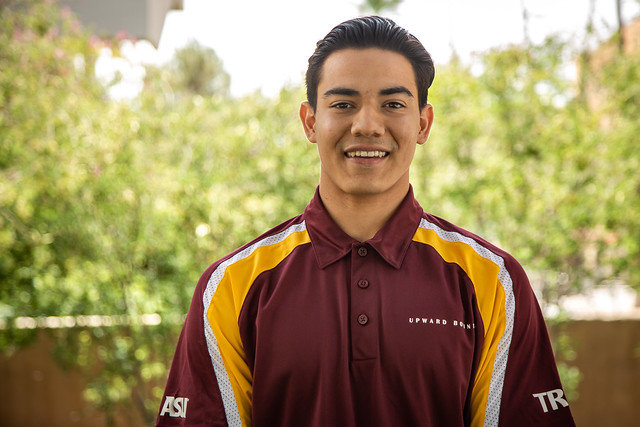Students show how to support the growing first-gen population at ASU
According to the ASU First Year Success Center, 35% of all undergraduates are the first in their family to attend college.
Because first-generation college students are such a fast-growing population, an inaugural conference was held this summer to help inform ASU faculty and staff about the experiences of first-gen students.
On June 25, helpful resources and solutions were presented to more than 250 attendees at the First-Gen Zone conference. Faculty and staff were encouraged to celebrate first-generation students by supporting them, listening to them and connecting them to resources on campus. The day included a keynote speaker, a variety of workshops and a student panel.
The student panel was made up of five first-generation students who represent different ASU organizations, campuses and degrees. The panel answered questions about their struggles going into college, their opinions and advice they would give future first-gen Sun Devils.
One member of the panel was Oskar Fragozo, 20, a junior at ASU studying family and human development.
Fragozo is a first-generation student from San Luis, Arizona. San Luis is a small town on the southwesten border between Arizona and Mexico. Fragozo said being from a small town sometimes made college seem impossible. And since he was the first in his family to pursue a postsecondary education, it was hard to ask for help.

Oskar Fragozo, 20, is a first-generation student pursuing a degree in family and human development.
“I had a lot of pressure on me; it was scary at the beginning. I was pretty much on my own,” Fragozo said.
Fragozo applied and got accepted into all three state universities. He chose ASU because of the financial aid available and because of the support system he received.
“I felt like they had something for me. They made me feel welcomed,” Fragozo said.
His freshman year at ASU, he joined the College Assistance Migrant Program. In CAMP, Fragozo was paired with a recruiter/mentor who helped him academically and socially.
“My recruiter is an amazing person. He was a shoulder of support through my first year of college,” he said.
Through CAMP, Fragozo was hired as an office assistant for TRIO Upward Bound.
TRIO is a group of federally funded programs that support students with disabilities, low-income students, first-generation students and veterans in seeking higher education. ASU has nine TRIO programs, including two of the longest continually funded programs, Upward Bound Tempe, 53 years, and Veterans Upward Bound, 46 years.
Upward Bound is a high school program geared for 9–12th grade first-generation, low-income students. The program encourages students to seek a college education through mentoring, tutoring, incentives and a summer residential program.
At Upward Bound, Fragozo now uses his experience as a first-gen student to help support other students who might be the first in their families to go to college.
During the Q&A, when asked what advice he would give to future first-generation students, Fragozo said, ”to believe in themselves, that they have what it takes to be college material.”
In the future, Fragozo wants to attend graduate school to earn a PhD pursue a career as a mental health counselor.
“I would love to give back to my community,” he said.
To find out more about first-gen resources, visit the First-Year Success Center or the TRIO sites.